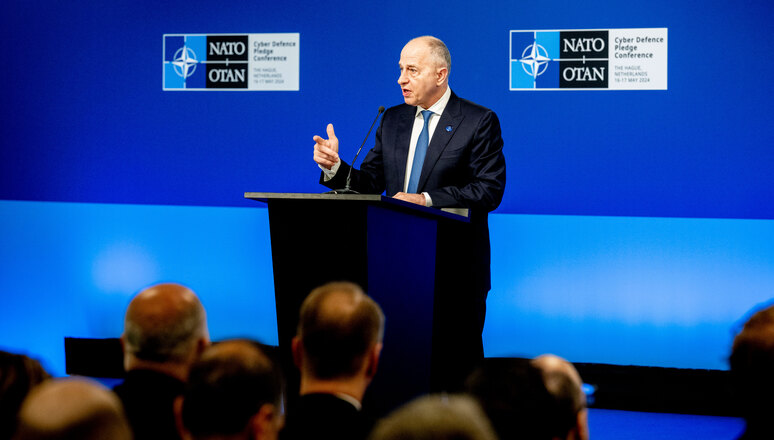At the NATO Cyber Defence Pledge Conference in the Hague, NATO Deputy Secretary General Mircea Geoană emphasized the need for Allies to be ambitious in their approach to cyber defense. He highlighted the increasing use of cyber and hybrid operations by adversaries and stressed that there is no peace in cyberspace. The Cyber Defence Pledge, established in 2016, has been instrumental in boosting Allies’ cyber defenses and enhancing NATO’s collective resilience to cyber threats. Following the 2023 Vilnius Summit, Allies have been working on developing a cyber ‘maturity model’ to allocate resources more efficiently.
Looking towards the future, Geoană emphasized the importance of strengthening civil-military cooperation, including closer collaboration with the tech industry. This will be a focus of the upcoming Washington Summit. He also welcomed the participation of eighteen NATO partner countries in the Cyber Defence Pledge Conference for the first time. Geoană noted that cyber is a top request from NATO partners and encouraged all Allies to be open to these requests to strengthen resilience in cyberspace. The Deputy Secretary General highlighted the need for a new mindset and increased cooperation to combat cyber threats effectively.
The 2024 Cyber Defence Pledge Conference was co-hosted by the Netherlands and Romania. Following his address at the conference, Geoană met with the Dutch Minister of Defence, Kasja Ollongren, and engaged with students from Leiden University to discuss NATO’s agenda for the upcoming Washington Summit. The conference provided a platform for Allies to discuss strategies for enhancing cyber defenses and strengthening national networks and infrastructures. Geoană’s discussions with government officials and students aimed to raise awareness about the importance of cybersecurity and the need for collaboration at both national and international levels.
In conclusion, NATO’s Cyber Defence Pledge Conference in the Hague highlighted the ongoing efforts to enhance cyber defenses and resilience against cyber threats. Geoană’s emphasis on the need for ambition, a new mindset, and increased cooperation underscores the complex and evolving nature of cybersecurity challenges. The participation of partner countries and discussions with government officials and students reflect the importance of engaging a wide range of stakeholders in addressing cybersecurity issues. As NATO prepares for the Washington Summit, the focus on civil-military cooperation and collaboration with the tech industry will be crucial in strengthening cyber defenses and ensuring security in cyberspace.









